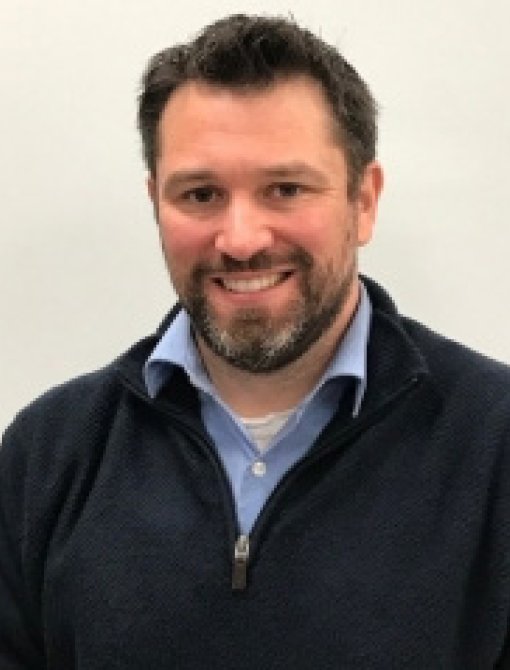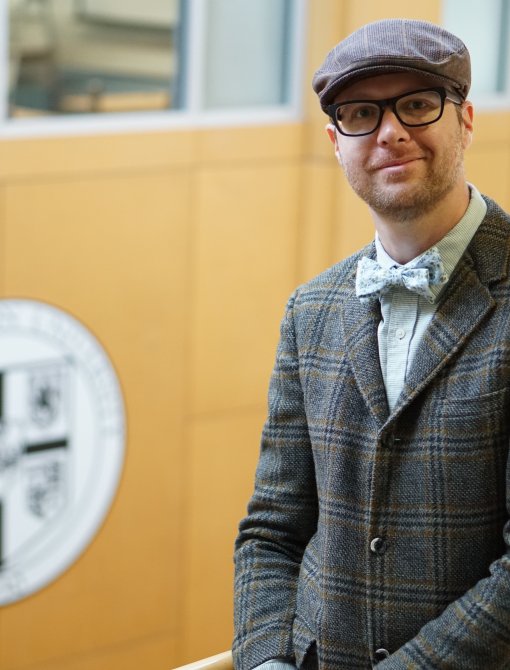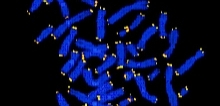Post-baccalaureate level courses at Old Dominion University are designed to provide the fundamental principles, advanced applications and laboratory skills needed for molecular diagnostic and molecular biology procedures conducted in a clinical or research environment.
About the Program
The program is intended for those individuals with a baccalaureate degree in biology, chemistry, health sciences or related health and scientific disciplines that wish to enhance their laboratory expertise and knowledge in molecular-based methods. The coursework will provide solid didactic preparation for those qualified individuals seeking certification in molecular pathology by the American Society for Clinical Pathology (ASCP) or in molecular biology by the National Credentialing Agency for Laboratory Personnel. It will also convey valuable background foundation and training for graduate or BS level students in biology/related fields who seek employment in basic science, biotechnology, pharmaceutical and clinical diagnostic laboratories.
The program consists of lecture-based instruction and hands-on laboratory sessions and internships in molecular diagnostic laboratories. Classroom lectures and laboratory sessions are offered in the evening to accommodate schedules of working professionals. For the certificate, students must complete at least 12 credit hours of the molecular diagnostics courses described below with a 3.0 grade point average.
| Fall | ||
|---|---|---|
| MDTS 500 | Principles of Molecular Pathology and Clinical Diagnostics | 3.0 credits |
| MDTS 501 | Molecular Diagnostics Laboratory | 3.0 credits |
| Spring | ||
| MDTS 600 | Advanced Clinical Applications of Molecular Diagnostics | 3.0 credits |
| MDTS 601 | Advanced Molecular Diagnostics Laboratory | 3.0 credits |
| MDTS 650 | Clinical Internship in Molecular Diagnostics | 3.0 credits |
MDTS 500 Principles of Molecular Pathology and Clinical Diagnostics. Lecture 3 hrs; 3 credits. Prerequisite: BIOL 250, 251; CHEM 311, 312, or permission of instructor. Basic concepts of molecular pathology & clinical diagnostics including nucleic acids, chromosomes, DNA replication, transcription, proteins, mutations & chromosome changes that underlie inherited & acquired/infectious disease, inheritance patterns & genetics as applied to oncology, cardiac disease & organ transplants. Covers emerging molecular/cytologic/histologic methods (amplification, hybridization & microarrays) to detect disease markers, monitor therapy & assess identity; pharmacogenomics & legal/ethical issues of genetic testing
MDTS 501 Molecular Diagnostics Laboratory. Lecture 1 hr, Laboratory 4 hrs; 3 credits. Co-requisite: MDTS 500 or permission of instructor. Course includes hands-on experience with or discussions of diagnostic instrumentation and assays using nucleic acid and protein extraction, gel electrophoresis, hybridization techniques, PCR and other amplification methods, DNA sequencing, autoradiography, flow cytometry, microarrays and proteomics-based methods.
MDTS 600 Advanced Clinical Applications of Molecular Diagnostics. Lecture 3 hrs; 3 credits. Prerequisite: MDTS 500, 501 or permission of instructor. Course will cover 1) new applications of standard molecular diagnostic techniques and 2) cutting edge technologies, instrumentation and technical advances, both as applied to clinical case studies. Emphasis will be on pharmacogenomics and disease processes, including inherited conditions, cancer, hematopathology, infectious diseases, mental retardation and developmental delay. Innovative technologies covered include comparative genomic hybridization and next-generation sequencing.
MDTS 601 Advanced Molecular Diagnostics Laboratory. Lecture 1 hr, Laboratory 4 hrs; 3 credits. Prerequisite: MDTS 500, 501 or permission of instructor. Emphasis of this course will be on primer design for PCR, advanced real time PCR, cycle sequencing, capillary electrophoresis (CE) as applied to DNA sequencing, analysis of SNPs (single nucleotide polymorphisms), microsatellite instability, single strand conformational polymorphism (CE-SSCP) and other conditions.
MDTS 650 Clinical Internship in Molecular Diagnostics. 3 credits. Prerequisite: MDTS 500, 501, 600 and 601. An optional three-week supervised rotation in a hospital-based or clinical molecular diagnostics laboratory.
All interested applicants should email Dr. Robert Bruno (below) or Dr. Patrick Sachs (below) for guidance through the application process.


The program consists of lecture-based instruction and hands-on laboratory sessions and internships in molecular diagnostic laboratories. Classroom lectures and laboratory sessions are offered in the evening to accommodate schedules of working professionals. For the certificate, students must complete at least 12 credit hours of the molecular diagnostics courses described below with a 3.0 grade point average.
| Fall | ||
|---|---|---|
| MDTS 500 | Principles of Molecular Pathology and Clinical Diagnostics | 3.0 credits |
| MDTS 501 | Molecular Diagnostics Laboratory | 3.0 credits |
| Spring | ||
| MDTS 600 | Advanced Clinical Applications of Molecular Diagnostics | 3.0 credits |
| MDTS 601 | Advanced Molecular Diagnostics Laboratory | 3.0 credits |
| MDTS 650 | Clinical Internship in Molecular Diagnostics | 3.0 credits |
MDTS 500 Principles of Molecular Pathology and Clinical Diagnostics. Lecture 3 hrs; 3 credits. Prerequisite: BIOL 250, 251; CHEM 311, 312, or permission of instructor. Basic concepts of molecular pathology & clinical diagnostics including nucleic acids, chromosomes, DNA replication, transcription, proteins, mutations & chromosome changes that underlie inherited & acquired/infectious disease, inheritance patterns & genetics as applied to oncology, cardiac disease & organ transplants. Covers emerging molecular/cytologic/histologic methods (amplification, hybridization & microarrays) to detect disease markers, monitor therapy & assess identity; pharmacogenomics & legal/ethical issues of genetic testing
MDTS 501 Molecular Diagnostics Laboratory. Lecture 1 hr, Laboratory 4 hrs; 3 credits. Co-requisite: MDTS 500 or permission of instructor. Course includes hands-on experience with or discussions of diagnostic instrumentation and assays using nucleic acid and protein extraction, gel electrophoresis, hybridization techniques, PCR and other amplification methods, DNA sequencing, autoradiography, flow cytometry, microarrays and proteomics-based methods.
MDTS 600 Advanced Clinical Applications of Molecular Diagnostics. Lecture 3 hrs; 3 credits. Prerequisite: MDTS 500, 501 or permission of instructor. Course will cover 1) new applications of standard molecular diagnostic techniques and 2) cutting edge technologies, instrumentation and technical advances, both as applied to clinical case studies. Emphasis will be on pharmacogenomics and disease processes, including inherited conditions, cancer, hematopathology, infectious diseases, mental retardation and developmental delay. Innovative technologies covered include comparative genomic hybridization and next-generation sequencing.
MDTS 601 Advanced Molecular Diagnostics Laboratory. Lecture 1 hr, Laboratory 4 hrs; 3 credits. Prerequisite: MDTS 500, 501 or permission of instructor. Emphasis of this course will be on primer design for PCR, advanced real time PCR, cycle sequencing, capillary electrophoresis (CE) as applied to DNA sequencing, analysis of SNPs (single nucleotide polymorphisms), microsatellite instability, single strand conformational polymorphism (CE-SSCP) and other conditions.
MDTS 650 Clinical Internship in Molecular Diagnostics. 3 credits. Prerequisite: MDTS 500, 501, 600 and 601. An optional three-week supervised rotation in a hospital-based or clinical molecular diagnostics laboratory.
All interested applicants should email Dr. Robert Bruno (below) or Dr. Patrick Sachs (below) for guidance through the application process.


Contact the Director
Robert Bruno, Ph.D.
Associate Professor
School of Medical Diagnostic & Translational Sciences
3051 Ellmer College of Health Sciences
1019 W 41st Street
Norfolk, VA 23529
757-683-7091
rbruno@odu.edu



